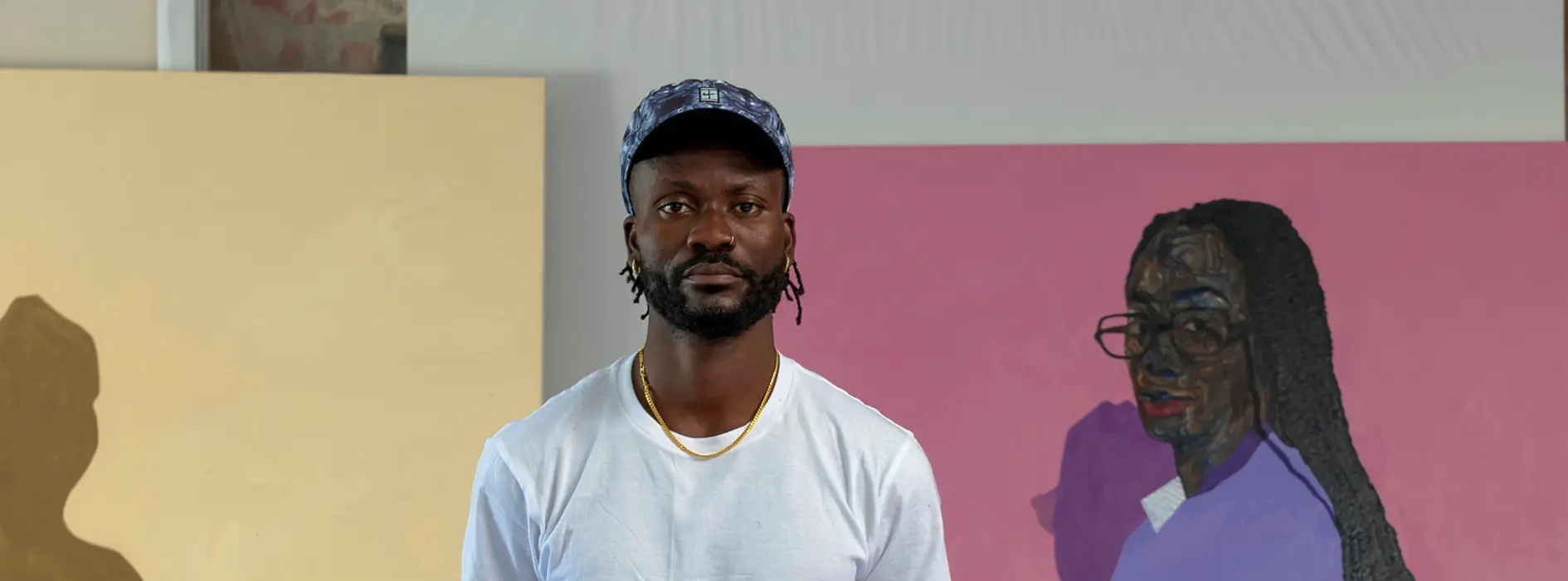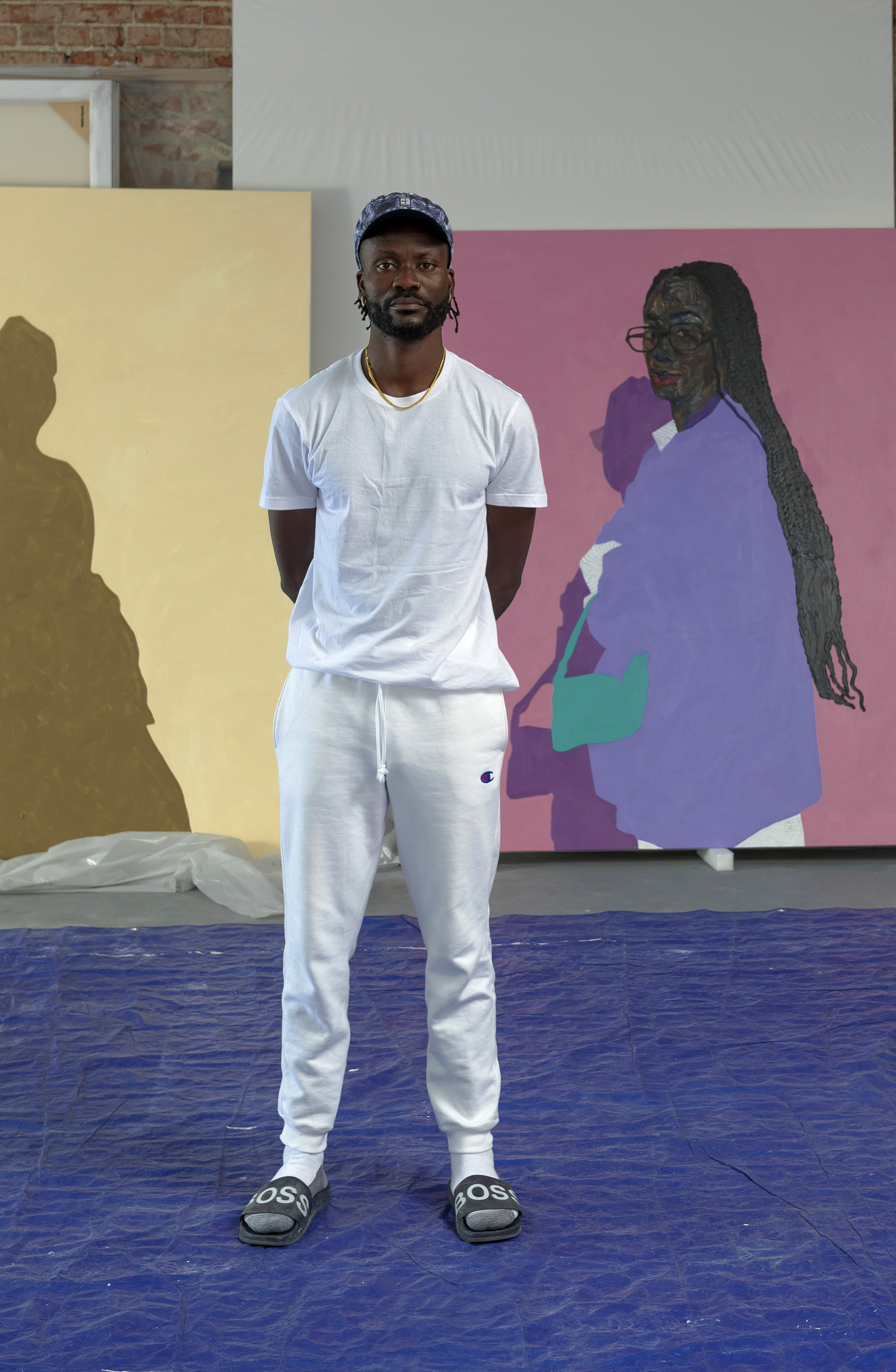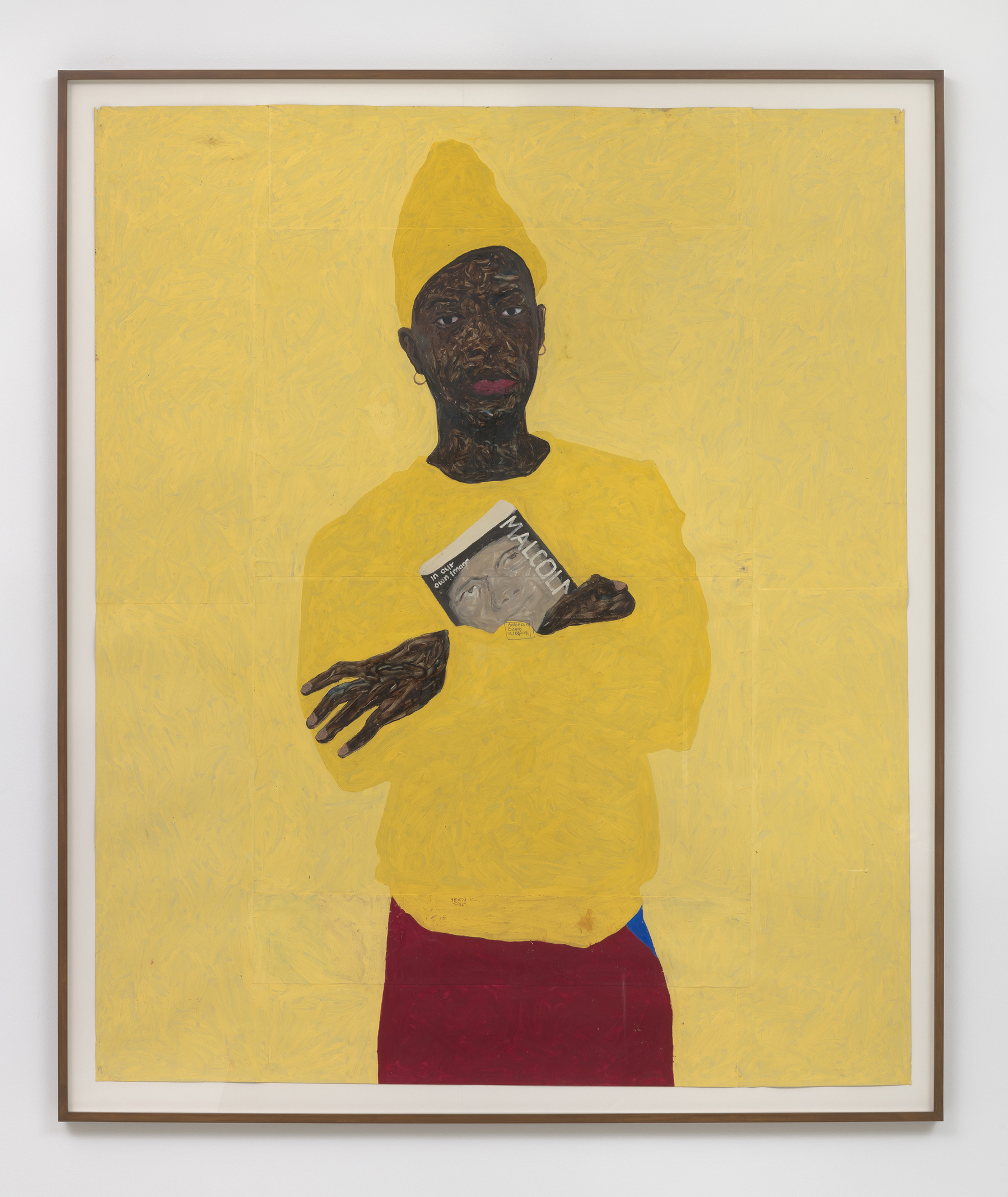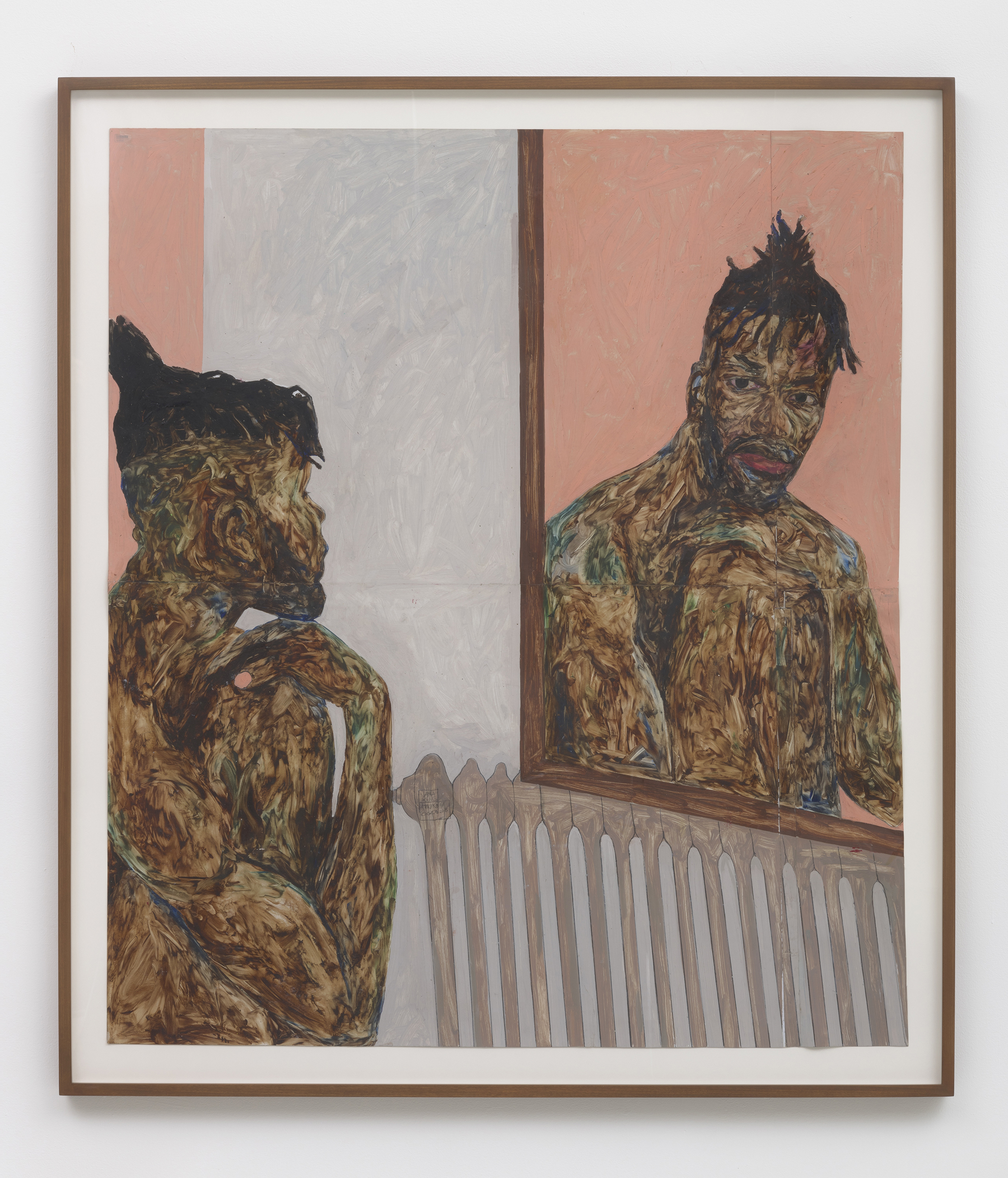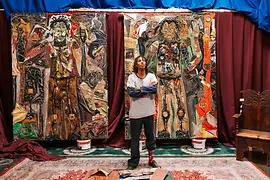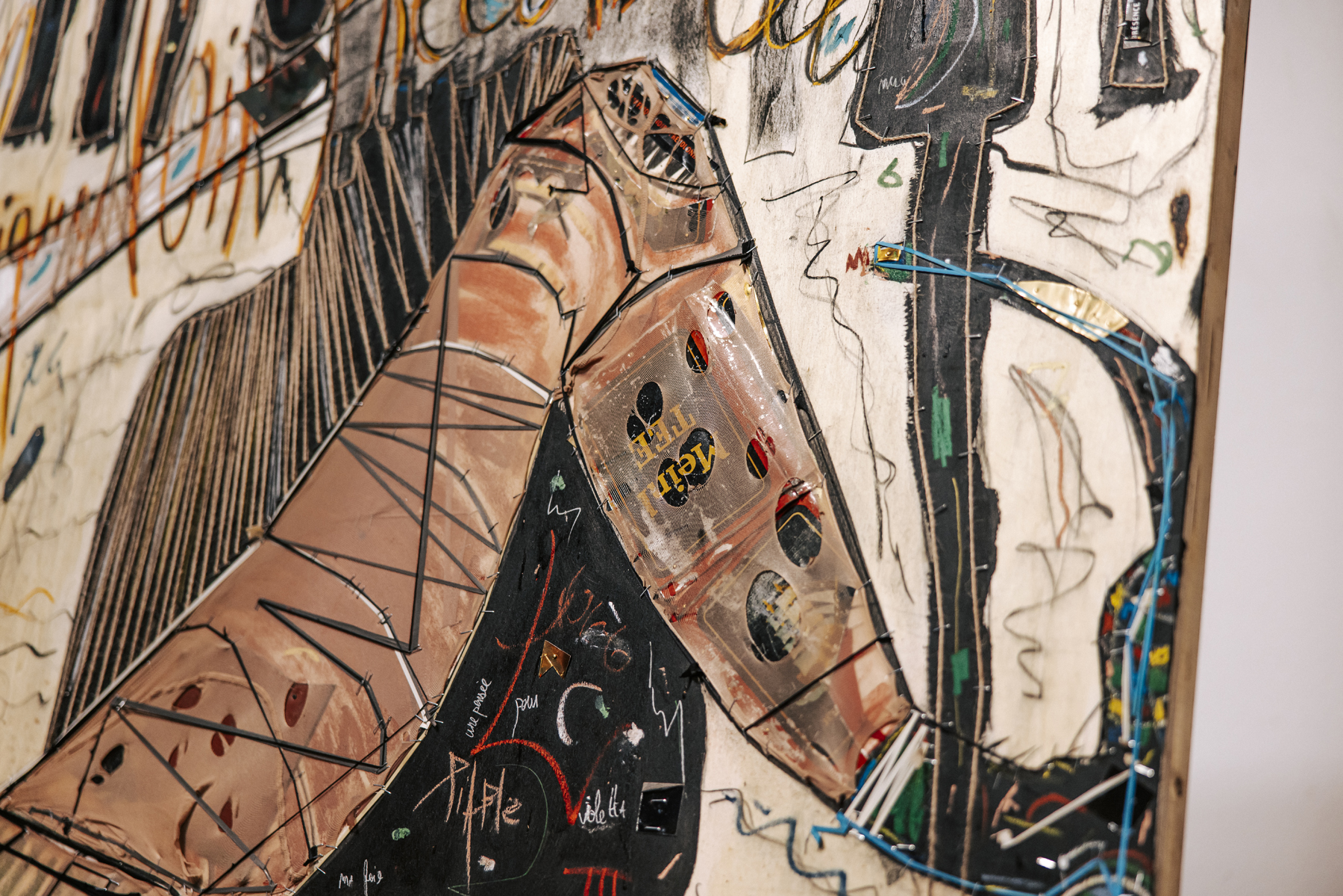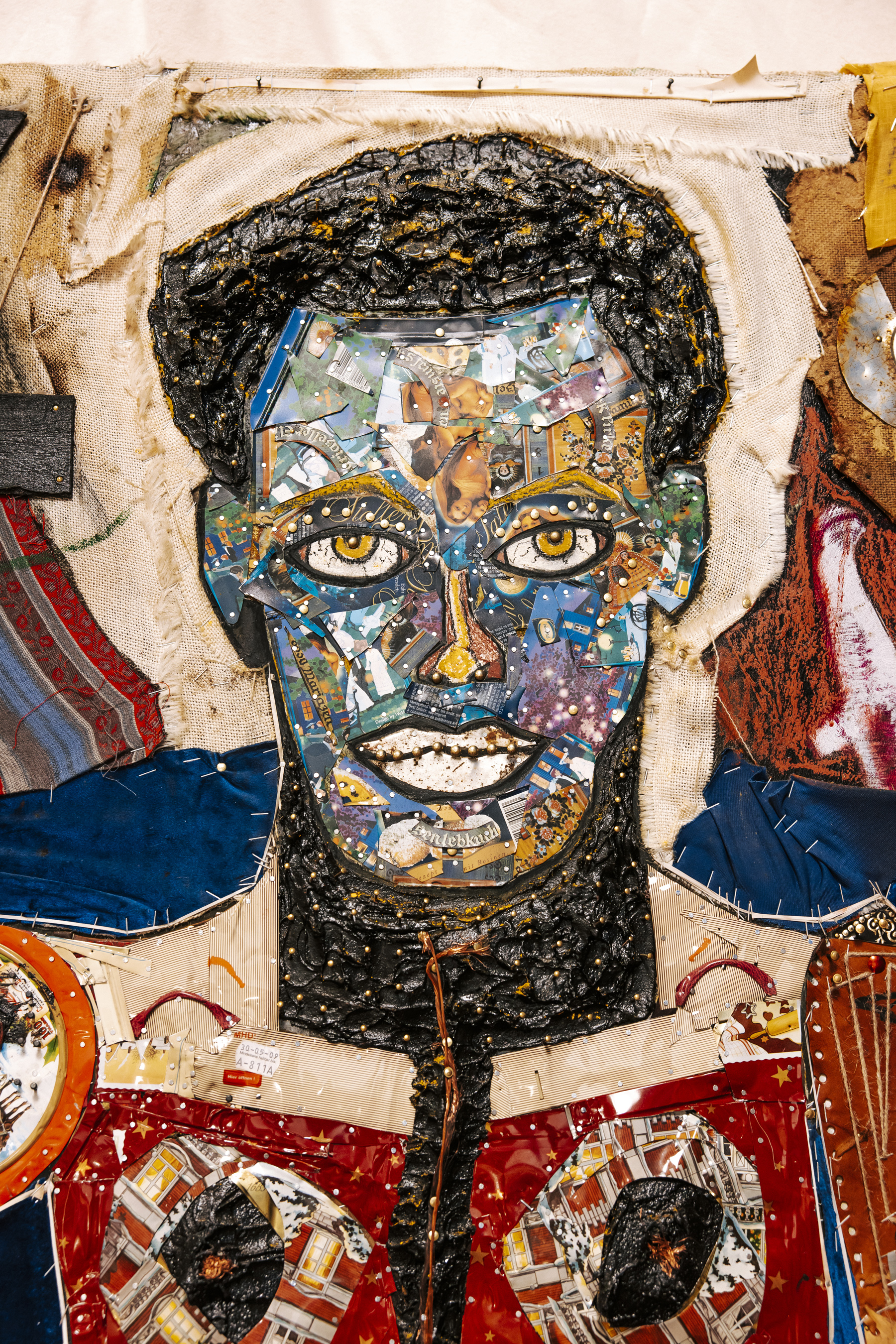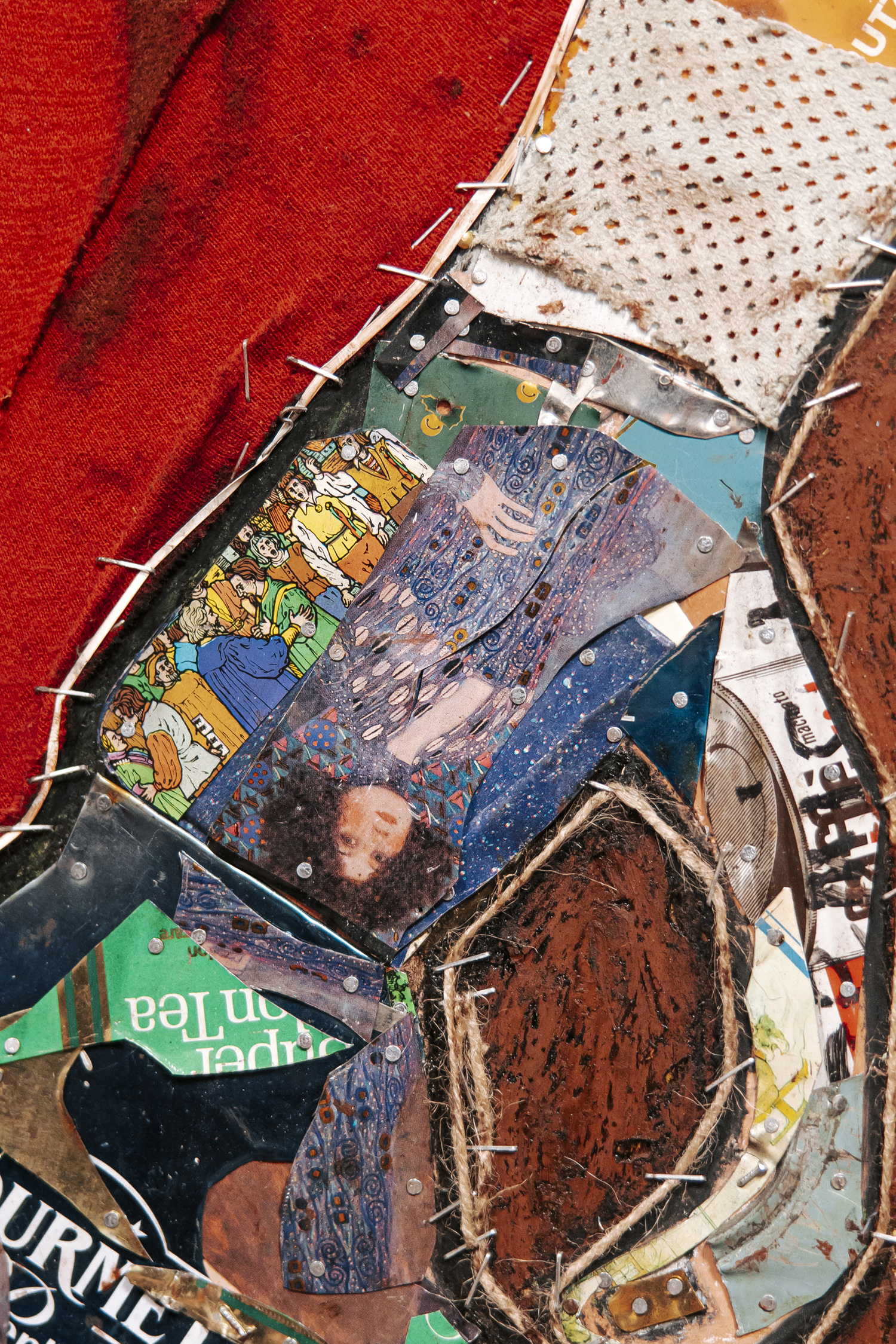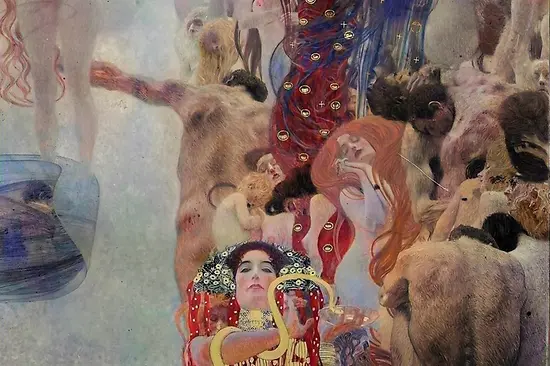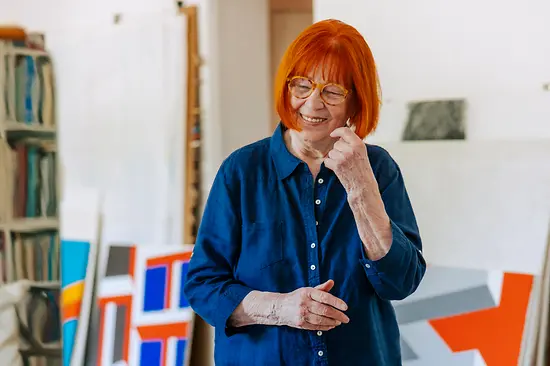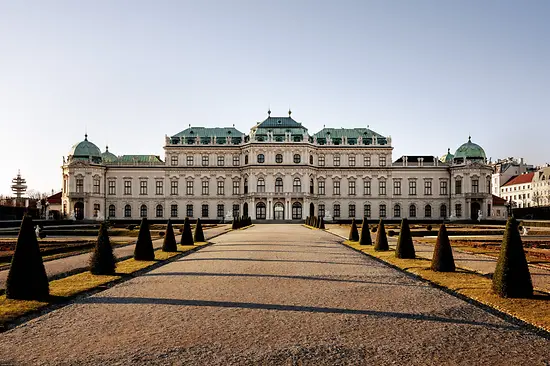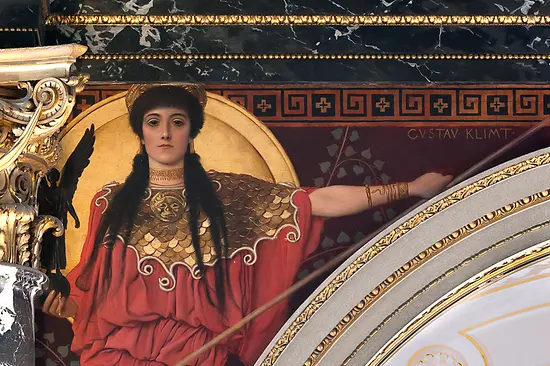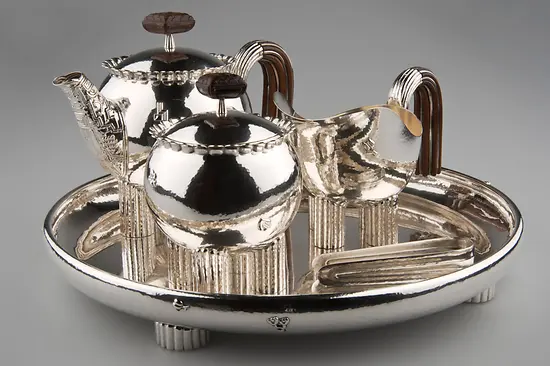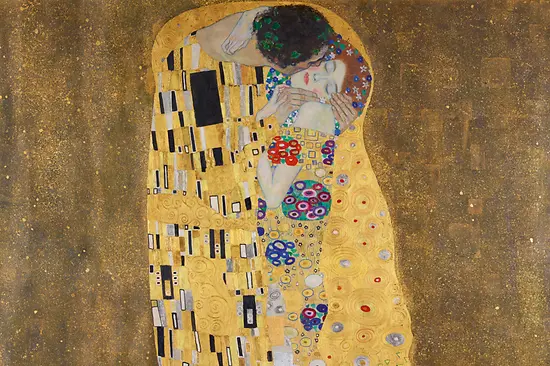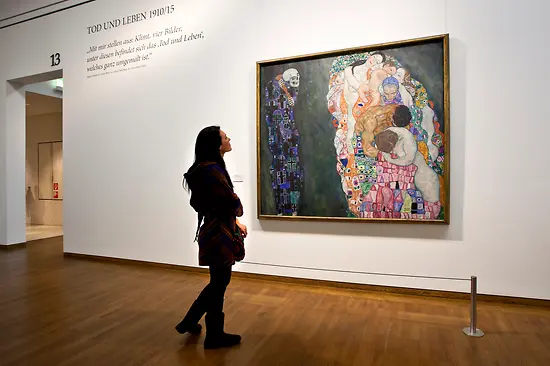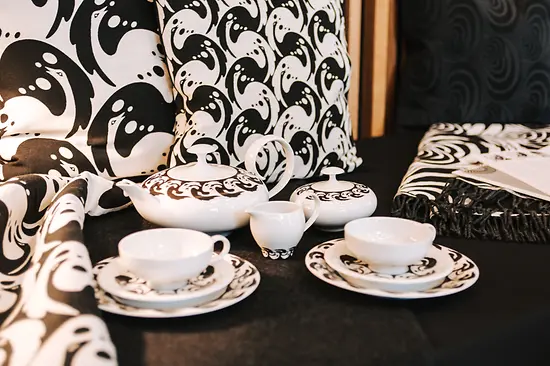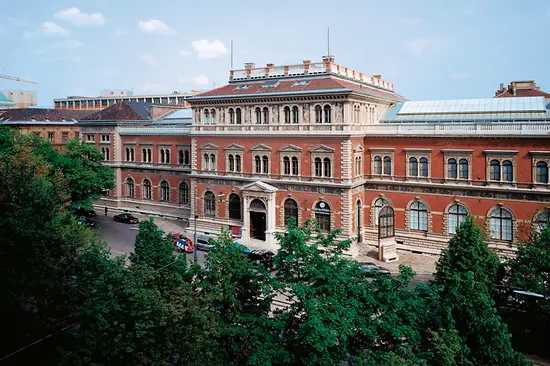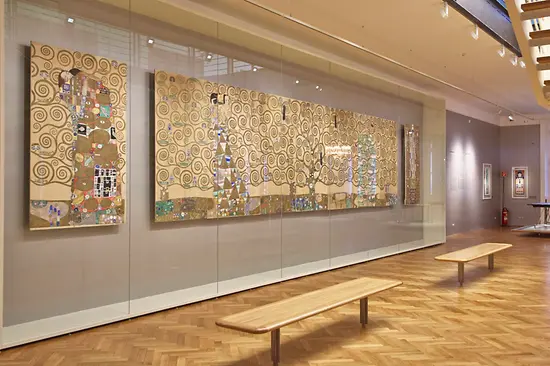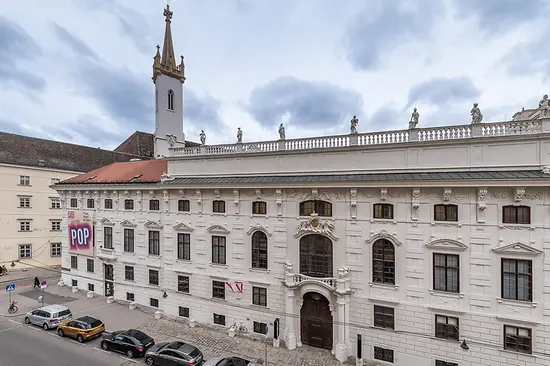Viennese Modernism Revisited
Viennese Modernism and its art is more on trend – and international – than ever before. As demonstrated by Ghana-born artist Amoako Boafo. The 37-year-old is currently taking the US art market by storm. His works adorn the walls of the Guggenheim in New York as well as the museum run by high-profile US collectors Don and Mera Rubell. Prices for his evocative works went through the roof in 2020.
These days, Boafos can change hands for up to a million dollars. The international art world cannot get enough. But what is so special about Boafo’s art? The focus of his work is on people of color. He portraits people of the diaspora, plays with their perceptions of themselves and their beauty, inviting the beholder to reflect on notions of Black subjectivity. For Boafo it is all about showing the complex nature of his sitters.
On an intellectual level, it is art that perfectly reflects the messages of the Black Lives Matter movement. “The main idea behind my work is representing, documenting and celebrating and revealing new ways of engaging with Black identity,” announced the publicity-shy artist via a press statement. His impressive story started in Vienna.
Inspirational Vienna
Boafo came to Vienna in 2014 to study at the Academy of Fine Arts. A decision that would have a life-changing effect on Boafo, who is the son of a fisherman and a cook. It was in Vienna that he first came into contact with Viennese Modernism, and the radical works of Egon Schiele in particular. Schiele’s influence on Boafo’s creative output is hard to miss, even for those with only a passing interest in art. In terms of its expressivity, the Ghanaian’s figurative painting is every bit the equal of the art created in fin-de-siècle Vienna. In both cases, it is a question of breaking free of entrenched patterns and looking at the world with fresh eyes. And it is here that Boafo really has struck a nerve.
Stellar Rise
The renowned US painter Kehinde Wiley, creator of the official portrait of Barack Obama, discovered Boafo on Instagram and became his first major backer. Drawing on his strong international connections, Vienna-based art manager Amir Shariat gave Boafo’s career another boost alongside LA gallery Roberts Projects by putting the artist on the radar of influential US art collectors Dona and Mera Rubell. Boafo was the first artist to be awarded an Artist Residency at the Rubell’s new art museum in Miami, setting a dynamic relationship in motion. These days Boafo shuttles between Vienna, Los Angeles and the Ghanaian capital Accra as he continues to build one of the most incredible art careers of recent years. In September 2021 he opened his second major solo exhibition at the Roberts Projects gallery in Los Angeles, while somehow finding the time to work on fashion label Dior’s 2021 menswear collection. Perhaps more excitingly than that, Boafo is not an outlier when it comes to art from Vienna with an African background which is significantly shaped by Viennese Modernism.
Football, Dance, Art
Vienna was also the launchpad for Alexandre Diop, who at the age of just 25 is in the midst of making it big in his career. In fall 2021 Diop featured at Art Basel. Known for their impeccable instincts, the Rubells already own a number of his pictures thanks to dealer Amir Shariat, and the next 20 works that Diop produces have already been sold. The hype surrounding him is similar to the buzz around Boafo. Both artists are represented by Roberts Projects, Los Angeles. But even before art enters the picture, Diop’s biography already says a thousand words: originally, the Franco-Senegalese had dreams of becoming a professional footballer, having played in the Paris Saint Germain youth team as a teenager. But it was not to be.Instead, he headed for Berlin where he studied dance and choreography. But a couple of years ago, he was drawn to Vienna and the Academy of Fine Arts where he studies painting under Daniel Richter. “Vienna is the perfect city for me. I can fully concentrate on my work here. Vienna is incredibly inspirational,” Diop confirmed during a visit to see him at his courtyard workshop in the third district. It’s a place where multiple threads come together: Amoako Boafo has a studio in the same building. In fact, the two are friends. And the Austrian artists Martha Jungwirth and Erwin Bohatsch also have their studios here. A worldclass hotbed of creativity, unknown even to most of the people who call the city home. Diop: “I’m at my most comfortable here. It would have been impossible for me to get hold of a studio like this in Berlin. It’s really not surprising that more and more artists from all over the world are being drawn to Vienna.”
Klimt’s Bling-Bling
Diop also engages with Black identity and Black self-perception. But his work is definitely more foreboding and mysterious. And Klimt’s influence is palpable: “Schiele is great, but for me Klimt’s even better.” That said, Diop’s and Boafo’s approaches could scarcely be any more different: Diop creates his works on wood and he prefers materials that he finds in scrapyards and rubbish dumps. He has a particular interest in metal. “One of my favorite places is the scrapyard on Prager Strasse. For me, the objects I find there are a significantly more efficient artistic medium than paint.” The metallic shimmer in his oeuvre can be seen as a reference to Klimt’s lavish use of gold. “Klimt’s bling-bling fascinates me because he uses it to transport something very sacral. It gives gold meaning.” And Diop’s art is rooted in intellectual depth: “My main sources of inspiration include the books of Senegalese historian and leading proponent of Afrocentrism Cheikh Anta Diop, who started to use science to contest the marginalization of Africa in the 1950s. For him, it was a question of elevating African self-perception.” While not actually related, they are kindred spirits in terms of approach. It is hard to believe that the Franco-Senegalese only entered the world of fine arts a little more than three years ago. But at what point did the former footballer start to identify as an artist? Diop grins: “I always have. After all, football is art, too. Because in both cases it is a question of expressing myself. There’s something very playful about both.”
Text: Johannes Luxner
